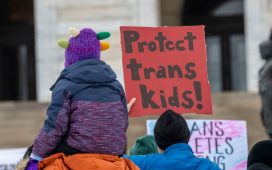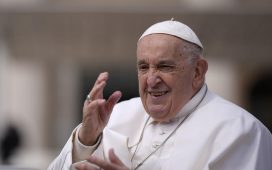In June of 1975, Prime Minister Indira Gandhi, of India, declared what became known as the Emergency; she suspended elections and jailed thousands of political opponents. That same year, Indira Jaising, a lawyer in Mumbai, formed the Workers Law Center, to represent the striking railway workers whose agitation had helped provoke Gandhi. “I belonged to the ‘Midnight’s Children’ generation,” Jaising recalled recently, referring to Salman Rushdie’s iconic novel about the birth of independent India, in 1947. Jaising was six years old at the time of independence and, as a law student at the University of Bombay, she imbibed the idealism of India’s new constitution—an ambitious experiment in rights-based democracy on a wildly diverse subcontinent. Even after the catastrophe of Partition, the most serious threat seemed to be poverty and inequality. “I really thought all my challenges were going to be on the social and economic rights of marginalized communities,” Jaising told me. “There was this feeling that, as long as you work on these issues of poverty, India will be fine.”
It hasn’t quite turned out that way. Poverty and inequality are still monumental challenges, but Indian democracy itself has decayed in ways that Jaising did not foresee. She is now eighty and still active in public-interest law, but, when we spoke by telephone recently, she was fighting a criminal investigation against her and Anand Grover, her law partner and husband. Their case is one of many apparently arbitrary, punitive investigations that, in recent years, the Hindu-nationalist administration of Prime Minister Narendra Modi’s Bharatiya Janata Party and its allies have opened against civil-rights advocates. “Naïvely or not,” Jaising told me, “It was the first time I realized that, for arguing in a court of law, you can face retaliation.” She added, “It’s very important for authoritarians to attack lawyers, because you are also attacking the right to legal representation.”
Last September, Amnesty International suspended its operations in India because of what Rajat Khosla, the group’s senior director of research, described as “an onslaught of attacks, bullying, and harassment by the government in a very systematic manner.” Human Rights Watch, in its 2020 survey of India, described a raft of “politically motivated cases . . . against human rights defenders, student activists, academics, opposition leaders, and critics.” Journalists, too, have been arrested, threatened, and beaten by mobs or by the police for reporting on the government’s handling of COVID-19. Freedom House, an N.G.O. that promotes democracy, recently downgraded its ranking of India from “free” to “partly free,” citing a “multiyear pattern in which the Hindu nationalist government and its allies have presided over rising violence and discriminatory policies” against the country’s large Muslim minority, while also pursuing “a crackdown on expressions of dissent by the media, academics, civil society groups and protestors.”
Indira Gandhi’s Emergency shocked but also galvanized India, Jaising told me, noting that “the Emergency was written on a paper. You could fight it. You could go to court.” Modi’s emerging autocracy, enabled by his immense personal popularity, has spread like a smothering fog. It is “much more subtle,” Jaising said, affecting “every sector of society, of government, of states.” She added, “I can’t fight an undeclared emergency.”
In 1981, Jaising and Grover founded the Lawyers Collective, which absorbed the work of the Workers Center and went on to represent victims of the Bhopal disaster of 1984, in which hundreds of thousands of people were exposed to a toxic-gas leak from a pesticide plant operated by an Indian affiliate of Union Carbide. In later years, the Collective expanded to work on womens’ rights, India’s H.I.V. crisis, and public access to medicine. Jaising served for a time during a center-left coalition government, led by the Congress Party, which Modi’s B.J.P. defeated in 2014. After that election, the government opened reviews of her practice, and ultimately suspended the license that granted the Collective permission to receive foreign donations. In 2019, police raided the Collective’s offices and Jaising’s residence. Since then, tax authorities have indicated that they have the Collective under investigation on suspicion of money laundering, because of funding that it receives from international donors, such as the Ford Foundation and the Open Society Foundations. (Spokespeople for the Ministry of Finance and the Ministry of Home Affairs declined to comment.) Jaising said that the funds are used to pay salaries for herself and for staff members, with the donors’ approval, and that the money-laundering allegations are politically motivated and without merit.
Indian governments have long used convoluted tax and police investigations to pressure political opponents. Yet, as Modi has consolidated power, his government’s attacks on civil society have exceeded any imposed since the Emergency. As in Russia, China, Turkey, and elsewhere, it is easy to defend such tactics on nationalistic grounds, by targeting the supposedly nefarious influence of international donors. In 2018, India’s Parliament passed an amendment to the 2010 Foreign Contribution Regulation Act, to tighten restrictions on nonprofits that receive donations from abroad. The next year, Modi was reëlected, and, in 2020, his B.J.P. majority in the Parliament passed amendments that, according to Human Rights Watch, “add onerous governmental oversight” and effectively ban foreign funding for small non-governmental organizations.
India and the United States are vastly different countries, but they are both large, pluralistic democracies, and, for a decade or more, the two nations have regarded each other as essential allies against China. American Presidents have repeatedly celebrated the alliance. “India in the twenty-first century is a natural partner of the United States, because we are brothers in the cause of human liberty,” George W. Bush said during a visit there in 2006. Four years later, Barack Obama told the Indian Parliament, “It is my firm belief that the relationship between the United States and India—bound by our shared interests and our shared values—will be one of the defining partnerships of the twenty-first century.”
In February, 2020, as the coronavirus swept across China, Donald Trump, too, visited India. He praised the country as “a miracle of democracy,” but seemed at least as impressed by Bollywood, cricket, and “the tallest statue on the face of the earth.” (It honors the late politician Sardar Patel.) Trump celebrated Modi uncritically, saying, “Everybody loves him, but I will tell you this: he’s very tough.” In the aftermath of Trump’s Presidency, an American foreign policy premised on the idea that democracies will defeat autocrats in the long run—a strategy that President Joe Biden has adopted in his first published national-security strategy—can be easily questioned, as Biden himself acknowledges. “This is a battle between the utility of democracies in the twenty-first century and autocracies,” he said last month. “We’ve got to prove democracy works.”
That project starts at home, of course, and, at a time when the State of Georgia has outlawed the unauthorized provision of water to voters stuck in long lines on Election Day, Washington is hardly in a position to lecture India about the betrayal of its constitutional ideals. It is hard to deny the recent parallel paths the two countries have taken: the election of an autocratic populist who undermines institutions, the mobilization of virulent allies of the leader on social media, and the disruption of democratic norms long taken for granted. But, unfortunately for India, Modi enjoys far greater popularity than Trump ever did.
In any event, India has long shrugged off international pressure on domestic issues, and Modi’s administration is the most fiercely nationalistic that the independent nation has ever had. Milan Vaishnav, a senior fellow at the Carnegie Endowment for International Peace, wrote recently in Foreign Affairs that the Biden Administration’s strategy against China and Russia may start “from the assumption that an embrace of democracy at home and abroad is essential,” but that the Administration “is unlikely to elevate shared values above its primary interest of enlisting India” in a geopolitical compact against China. “India’s democratic renewal, therefore, must ultimately come from within.”
I asked Jaising how, or whether, Modi’s authoritarian run might be overcome. “Ideally, it should end in a political defeat in the manner that Trump’s run” ended, she said. “But I don’t see that happening. The reason is that this leader has gotten into the brains of a large majority of people. . . . He has mesmerized a whole country into collective hatred and othering of the Muslim community.”
Jaising has invested her faith in the resilience of India’s judiciary, perhaps optimistically. “I see young lawyers defending the civil and political rights of human-rights defenders, and that is a cause for hope.” On the day we spoke, she was preparing to become the lead counsel in a new case, challenging the use of spyware to target Indian activists. “I’m eighty years old,” she reminded me, in a tone that suggested both lament and pride. “There is no option. The only way we can live is by fighting.”








